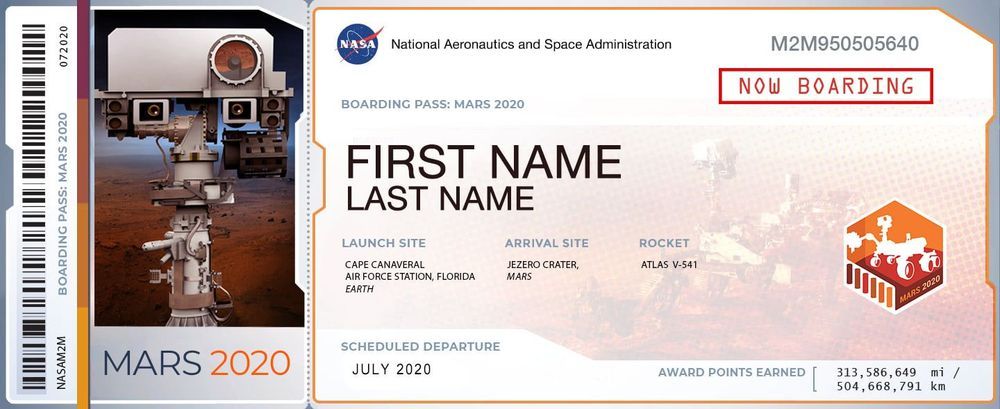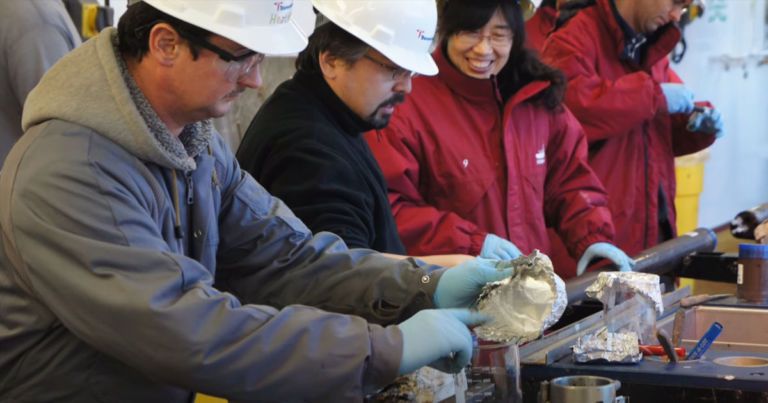They’re tracking my location and will keep talking to me as I cruise to Mars. go.nasa.gov/3ggbNGu #CountdownToMars


They’re tracking my location and will keep talking to me as I cruise to Mars. go.nasa.gov/3ggbNGu #CountdownToMars
A timelapse of Curiosity Rover hi-res selfies from 2012 to 2020. You can notice how the machinery is getting older over the years. We combined these selfies with the sound of the Mars Atmosphere taken by NASA Insight lander. Enjoy this mesmerizing experience.
Did you know NASA’s Perseverance Mars Rover and the first NASA Mars helicopter were both named by students?
After sorting through more than 28,000 submissions, the names were chosen by a panel of judges. Perseverance and Ingenuity represent qualities that humans need to explore space.
Meet the students behind their names: https://youtu.be/jJG14ZtoNh4 #CountdownToMars

Here’s the story – our protagonist rewinds history, locates baby Hitler, and averts global war by putting him on a path to peace … but, oh noes! This sets off a domino chain of events that stops our hero from being born, or worse, kicks off the apocalypse.
Unintended ‘butterfly effect’-style consequences of time travel might be a juicy problem in science fiction, but physicists now have reason to believe in a quantum landscape, tweaking history in this way shouldn’t be a major problem.
Since going back to a previous moment in time is still in the ‘too hard’ basket, a pair of physicists from the Los Alamos National Laboratory in the US went with the next best thing and created a simulation using an IBM-Q quantum computer.
Fascinating interview with Dutch astronomer Anthony Brown on ESA’s Gaia satellite and what it’s telling us about our own Milky Way Galaxy.
Dutch astronomer Anthony Brown of Leiden University explains how the European Space Agency’s GAIA satellite is revolutionizing what we know about the Milky Way. This all-sky survey mission revisits each target 70 times over the course of the years-long mission to give astronomers a real 3D map of a large swath of our galaxy. The next big data drop is scheduled by year’s end.

ENCODE Project’s third phase offers new insights into the organization and regulation of our genes and genome.
The Encyclopedia of DNA Elements (ENCODE) Project is a worldwide effort to understand how the human genome functions. With the completion of its latest phase, the ENCODE Project has added millions of candidate DNA “switches” from the human and mouse genomes that appear to regulate when and where genes are turned on, and a new registry that assigns a portion of these DNA switches to useful biological categories. The project also offers new visualization tools to assist in the use of ENCODE’s large datasets.
The project’s latest results were published in Nature, accompanied by 13 additional in-depth studies published in other major journals. ENCODE is funded by the National Human Genome Research Institute, part of the National Institutes of Health.

The team controlling NASA’s Mars 2020 Perseverance rover has received telemetry (detailed spacecraft data) down from the spacecraft and has also been able to send commands up to the spacecraft, according to Matt Wallace, the mission’s deputy project manager. The team, based at NASA’s Jet Propulsion Laboratory in Southern California, has confirmed that the spacecraft is healthy and on its way to Mars.
Wallace provided a more detailed update on two issues during launch operations:
First, the proximity of the spacecraft to Earth immediately after launch was saturating the ground station receivers of NASA’s Deep Space Network. This is a known issue that we have encountered on other planetary missions, including during the launch of NASA’s Curiosity rover in 2011. The Perseverance team worked through prepared mitigation strategies that included detuning the receivers and pointing the antennas slightly off-target from the spacecraft to bring the signal within an acceptable range. We are now in lock on telemetry after taking these actions.

Robot that 3D prints and cooks plant-based meat alternatives for foodservice — can replace manufacturing practices.
Israeli start-up SavorEat has developed an automated, closed system that 3D prints and cooks plant-based meat alternatives for foodservice. “This robot can replace manufacturing practices,” CEO Racheli Vizman tells FoodNavigator.


It’s Alive!
It’s technically possible that younger, more modern bacteria could have seeped down into the clay, Ars Technica reports, but the scientists think it was too densely packed to allow that.
“What we found was that life extends all the way from the seafloor to the underlying rocky basement,” University of Rhode Island oceanographer and study co-author Steven D’Hondt said in an accompanying video. “And what [lead author Yuki Morono’s] paper now shows is that those organisms are not only alive in the deepest form of sediment, but they’re capable of growing and dividing.”